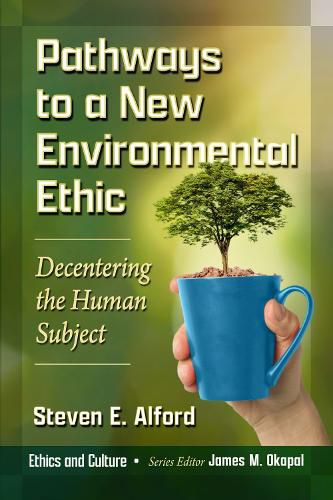Readings Newsletter
Become a Readings Member to make your shopping experience even easier.
Sign in or sign up for free!
You’re not far away from qualifying for FREE standard shipping within Australia
You’ve qualified for FREE standard shipping within Australia
The cart is loading…






This title is printed to order. This book may have been self-published. If so, we cannot guarantee the quality of the content. In the main most books will have gone through the editing process however some may not. We therefore suggest that you be aware of this before ordering this book. If in doubt check either the author or publisher’s details as we are unable to accept any returns unless they are faulty. Please contact us if you have any questions.
We are living through a time when the extinction of humanity itself looms on our generational horizon. While technological approaches to climate mitigation are admirable, our current ecological crisis results ultimately from an inherited, unexamined concept of selfhood, one standing in reciprocal relation to our misconceived view of nature. Regardless of our concept of nature--conservation, preservation, exploitation, or aesthetic/spiritual appreciation--the received idea that our self exists inside our skull engenders an unexamined assumption that nature is "out there," with historically devastating results for us all.
This book explores three new ways of thinking about the interrelation of ourselves and "nature": Merleau-Ponty's notion of embodiment, the connection between enactivism and affordances, and object-oriented ontology. These approaches to selfhood reorder our moral obligations: what are our responsibilities to ourselves, our children, and nature itself? An embodied ethic based on empathy, one compatible with object-oriented ontology that incorporates panpsychism, and one derived from the social imaginary can provide an ethic that transcends supposed cultural biases and offers a new way of confronting climate change. To meet contemporary environmental challenges, we need to change our minds about our minds.
$9.00 standard shipping within Australia
FREE standard shipping within Australia for orders over $100.00
Express & International shipping calculated at checkout
This title is printed to order. This book may have been self-published. If so, we cannot guarantee the quality of the content. In the main most books will have gone through the editing process however some may not. We therefore suggest that you be aware of this before ordering this book. If in doubt check either the author or publisher’s details as we are unable to accept any returns unless they are faulty. Please contact us if you have any questions.
We are living through a time when the extinction of humanity itself looms on our generational horizon. While technological approaches to climate mitigation are admirable, our current ecological crisis results ultimately from an inherited, unexamined concept of selfhood, one standing in reciprocal relation to our misconceived view of nature. Regardless of our concept of nature--conservation, preservation, exploitation, or aesthetic/spiritual appreciation--the received idea that our self exists inside our skull engenders an unexamined assumption that nature is "out there," with historically devastating results for us all.
This book explores three new ways of thinking about the interrelation of ourselves and "nature": Merleau-Ponty's notion of embodiment, the connection between enactivism and affordances, and object-oriented ontology. These approaches to selfhood reorder our moral obligations: what are our responsibilities to ourselves, our children, and nature itself? An embodied ethic based on empathy, one compatible with object-oriented ontology that incorporates panpsychism, and one derived from the social imaginary can provide an ethic that transcends supposed cultural biases and offers a new way of confronting climate change. To meet contemporary environmental challenges, we need to change our minds about our minds.